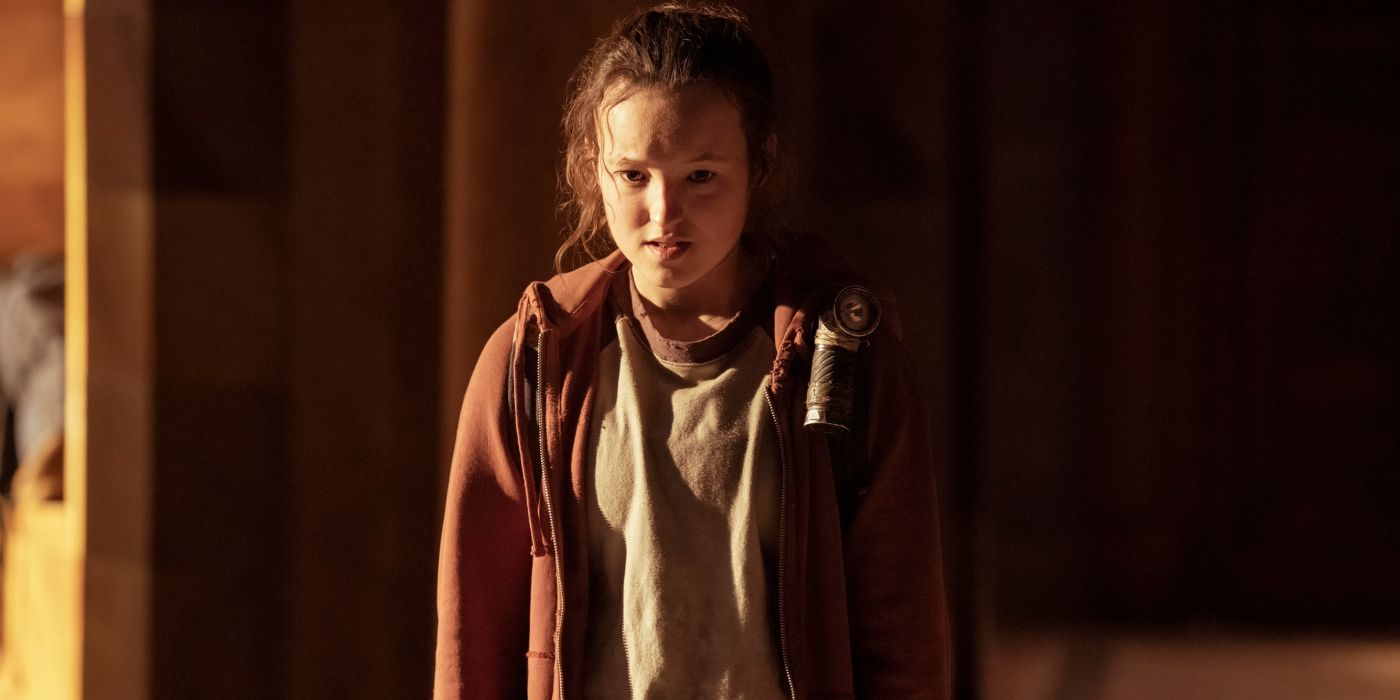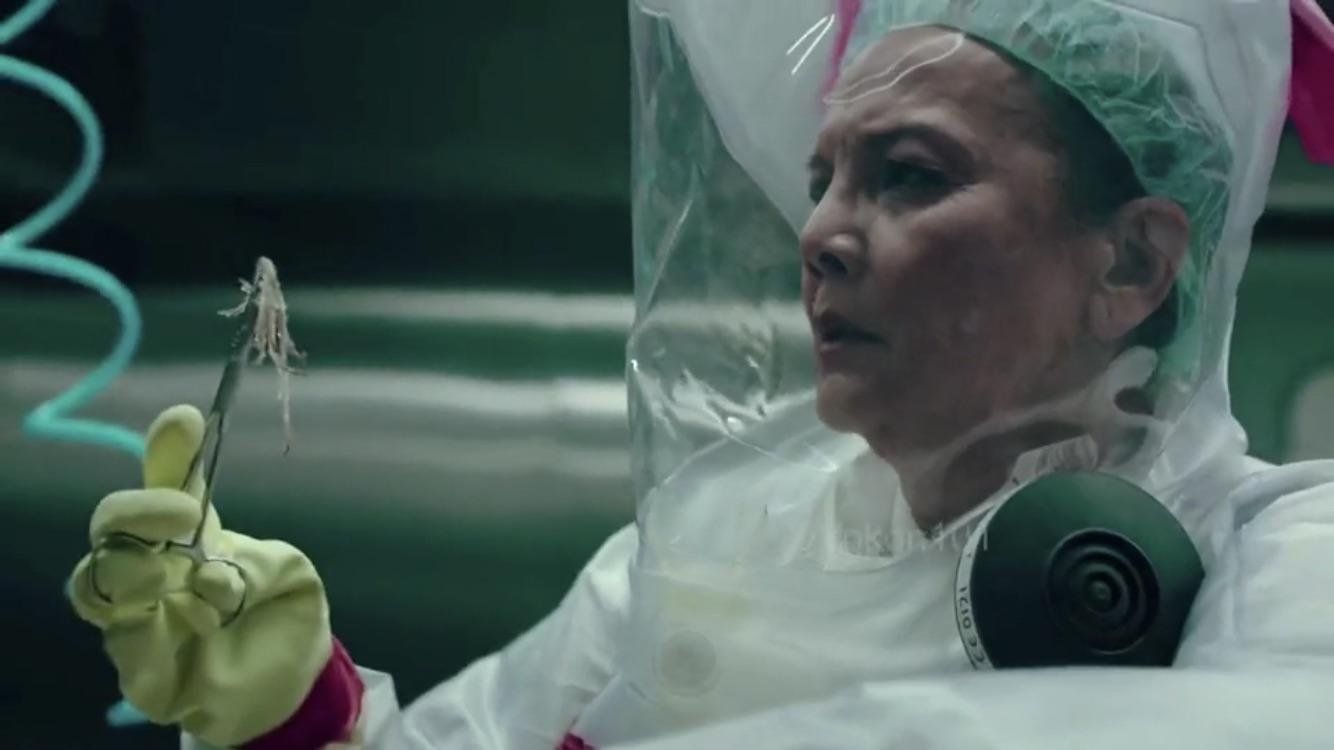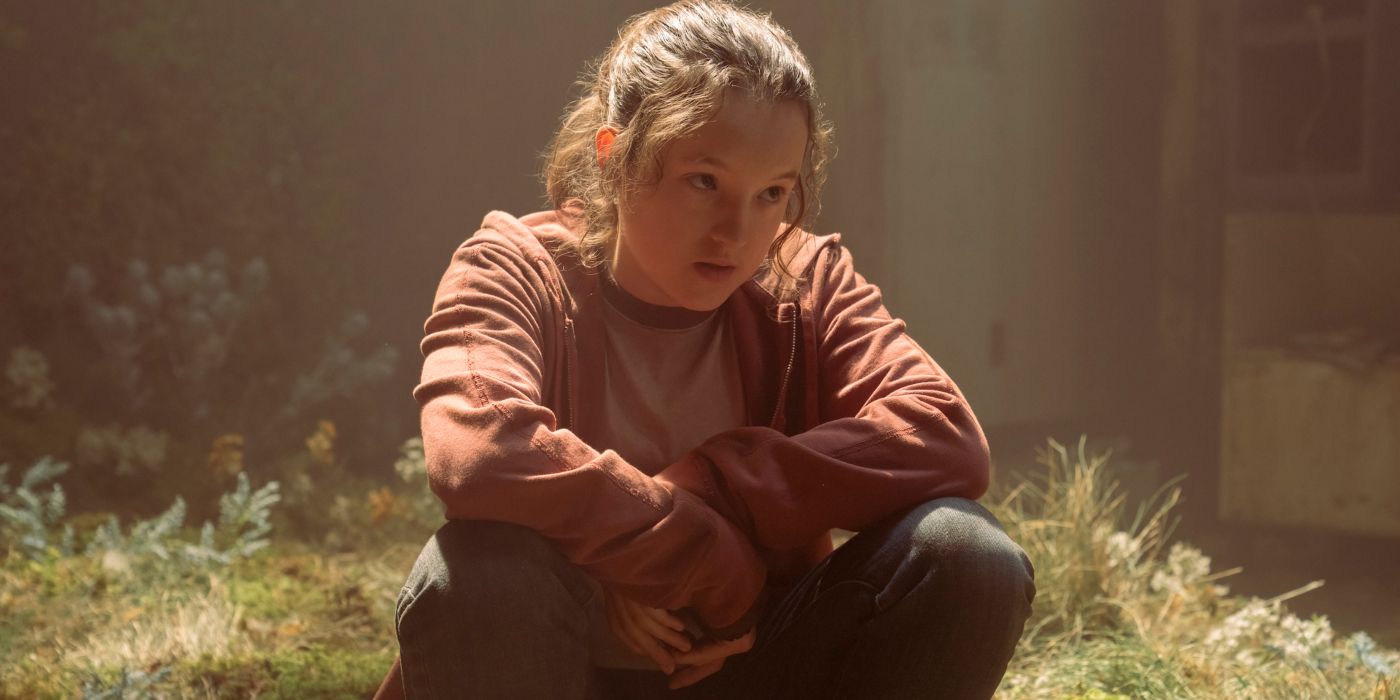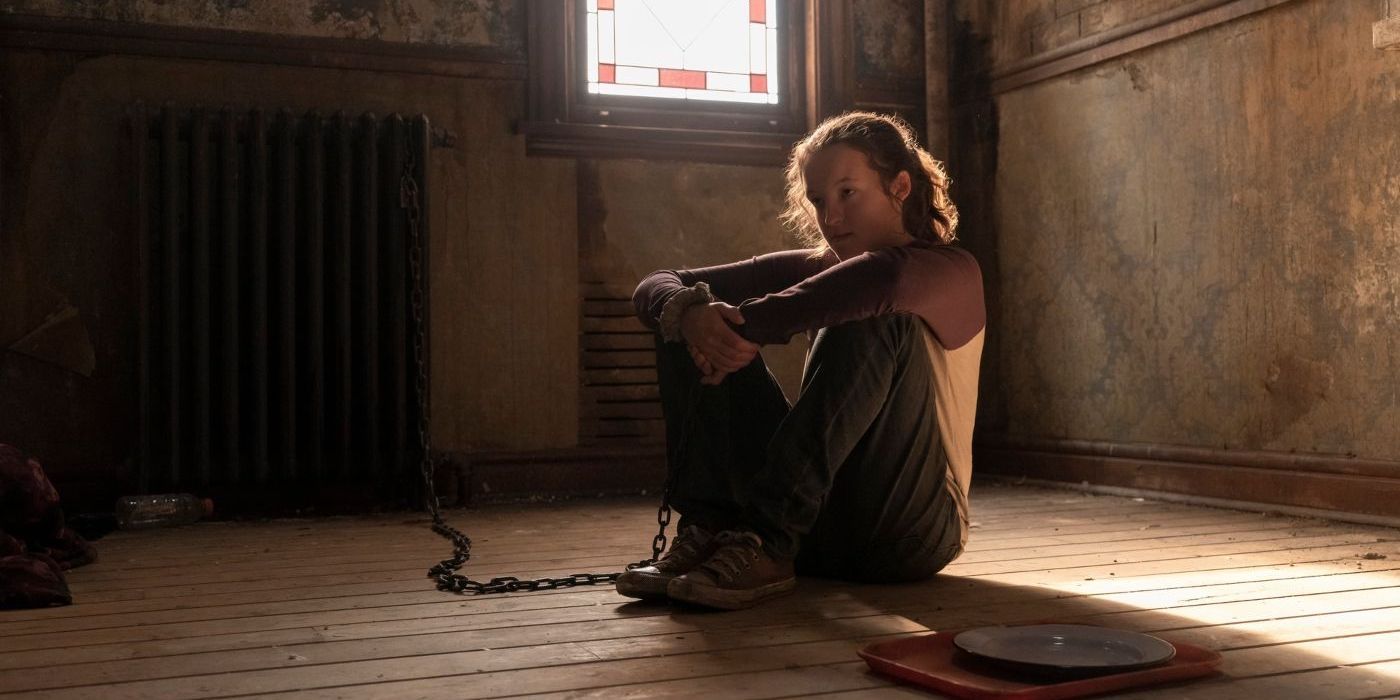Editor's note: The below contains spoilers for The Last of Us Episode 2 as well as The Last of Us video game.One question that viewers of last week's premiere of HBO's The Last of Us might be asking is whether it is worth it to take Ellie (Bella Ramsey) on what feels like a suicide mission through bombed-out, infected territory in post-apocalyptic Boston. Episode 2, "Infected," written by Craig Mazin and Neil Druckmann and directed by Druckmann as well, seeks to answer that question by explicitly stating the difficulty of containing the cordyceps fungal outbreak before proving that Ellie is in fact immune to infection.
In a pre-pandemic flashback sequence, we meet Professor Ibu Ratna (Christine Hakim) who is tasked with finding a way to cull the spread of the fungus or develop a medicine to treat those infected by cordyceps. This harrowing cold open reiterates what fans of the video game will already know: there is no hope for a vaccine or cure until Ellie's immunity is revealed. "Infected" shows us a cordyceps expert who is incapable of stopping the outbreak, then provides the counterpoint that Ellie might be humanity's last hope of quelling the cordyceps.
The Jakarta Sequence Shows That Humanity Has No Cure for Cordyceps
The second episode's cold open is a flashback taking place in Jakarta, Indonesia on September 24, 2003, prior to the events in Texas from last week's episode. Ibu Ratna, a professor of mycology, has her lunch interrupted by military police. She is taken to a secure government laboratory and told to inspect a sample, which she quickly identifies as "ophiocordyceps." When she is told that this sample was taken from a human, she confidently responds with, "Cordyceps cannot survive in humans." The military policeman's look of concern suggests that unfortunately, Ratna is about to be proven wrong.
Ratna dons a hazmat suit and enters a secure morgue to inspect a corpse containing cordyceps. When she opens the corpse's mouth to procure a sample with some medical scissors, she collects a few tendrils of the freaky fungus that immediately start writhing toward her as if sentient and malicious even when disconnected from their host body. Ratna drops the scissors holding the tendrils in fright and exits the morgue. Visibly shaken in the next scene, she speaks plainly and directly about the devastating nature of a cordyceps outbreak and why it is unlikely that any plan to stop the spread of the fungus will succeed.
The military officer wants Ratna's advice on how to handle this burgeoning crisis and prevent the spread of cordyceps, saying, "We need a vaccine or a medicine." After hearing how quickly the fungus spread between people via bites and learning that there are still infected humans at large in Jakarta, Ratna puts down her tea, her fingers trembling slightly, and tells the military policeman that their chances of survival are slim to none. "I have spent my life studying these things," she says. "So please listen carefully. There is no medicine. There is no vaccine." When the MP asks how they should proceed, she solemnly tells him to bomb the city "and everyone in it," then asks amid tears if someone can take her home so that she can be with her family.
Why Ellie Is So Important
The cold open of "Infected" establishes the unlikelihood of a medical solution to the outbreak, given cordyceps's rapid spread and the lack of an existing treatment or vaccine. The fact that a leading scientific mind calls for violent military intervention rather than research and clinical trials is all the audience needs to know about the deadly stakes of the outbreak. This is a doomsday scenario for Professor Ratna, one so despair-inducing that she quickly accepts the imminent demise of everyone around her, as evidenced by her asking to be with her family in her final moments. This flashback explains exactly why humanity was powerless to combat the virus during its initial outbreak, and how terrifying the concept of cordyceps in human beings would be.
20 years after the outbreak, in a bomb-ruined Boston where infected rule the streets, Joel (Pedro Pascal) makes it clear that he is too jaded and traumatized to believe in basic optimism, let alone a miracle cure that could stop cordyceps. Joel lived in the time before the outbreak as well and knows firsthand that there were no medical solutions even at the height of humanity's scientific power. He also makes it clear in this episode that he has heard claims about miracle cures before and that they have all been either snake oil or similar scams. This is why Joel is so mistrustful of Ellie, despite her claims that her bite mark is from weeks prior, thus proving that she is immune to cordyceps.
The episode takes key steps to prove that Ellie is not part of an elaborate scam and that her immunity is legitimate. Ellie has survived long past the normal transformation period, shown no signs of becoming a raving flesh-hungry lunatic, and her bite wound lacks the telltale tendril-like scarring of a typical infection. Joel's hardened heart and diehard pessimism make him more likely to shoot Ellie dead than continue with their proposed plan to take Ellie to a group of Fireflies, the freedom fighters who oppose government control and are searching for a cordyceps cure. Tess (Anna Torv) convinces Joel to continue on with the mission, reminding him that even if Ellie is not the key to a vaccine, they can still get paid for doing the job regardless. As Joel and Tess munch on what appears to be ancient jerky, they realize that the Fireflies have equipped Ellie with a rare commodity: a delicious-looking, sizable chicken sandwich. Though this is a relatively small detail, the fact that the Fireflies care enough about Ellie to give her such a decadent treat reiterates to Tess and Joel that the Fireflies are treating her like someone special, though the disparity between the quality of meals certainly doesn't endear Ellie to Joel any further.
An encounter with clickers, hideous sightless infected that use echolocation to find their prey, also proves that Ellie is telling the truth about her immunity to infection. Though Joel survives a fight with the clickers without getting bitten, Ellie gets bitten for the second time, but she isn't particularly upset about it, given her immunity. Her lack of concern is another reminder to Joel that she does not believe she will transform into a rabid infected creature. Later when it is revealed that Tess suffered a bite in the same encounter, it is shown that Tess's bite mark is already worsening, with fungal tendrils spreading from the site of the wound to the rest of her body. In a matter of minutes, her condition has rapidly deteriorated, which is telling when compared with Ellie's relatively tidy bite marks. Though Joel is still deeply skeptical of the plan to transport Ellie and find a cure, Tess convinces him to continue on with the mission, sacrificing herself to buy them time. Her dying efforts are another reminder of Ellie's importance to both Tess personally and the hopes of humanity's survival.
Ellie Is Humanity's Hope for a Cure
Whether Joel truly believes that a cure is possible or that the Fireflies can be trusted to find one, he has at least accrued enough evidence by the time "Infected" ends to believe that Ellie is being honest when she says she is immune to cordyceps. Ellie is an anomaly in this world; she is the hope for something that even mycology expert Prof. Ratna did not believe was possible. She is such a rare chance for a hopeful future that Tess made it her dying wish for Joel to continue on with his mission. Because of his relationship with Tess, Joel is bound by this promise to Tess in the video game and continues on with Ellie, even when facing perilous and seemingly impossible odds.
This is how the second episode of HBO's The Last of Us heightens Ellie's importance: by raising the stakes regarding the impossibility of medically treating cordyceps and painstakingly showing the viewer why Ellie's immunity is something special.
New episodes of The Last of Us premiere every Sunday on HBO and HBO Max.




